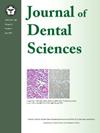Hypoxia amplifies arecoline-induced invasion and metastasis in oral squamous cell carcinoma – Insights into TGF-β1 signaling and collagen production
IF 3.4
3区 医学
Q1 DENTISTRY, ORAL SURGERY & MEDICINE
引用次数: 0
Abstract
Background/Purpose
Betel quid chewing is a major risk factor for oral squamous cell carcinoma (OSCC), largely due to arecoline, a key alkaloid. Hypoxia, common in the tumor microenvironment, also influences cancer progression. This study investigated the combined effects of arecoline and hypoxia on proliferation, migration, and protein expression in tongue squamous cell carcinoma (SCC-25) cells, focusing on the TGF-β1 signaling pathway and type I collagen production.
Materials and methods
SCC-25 cells were treated with arecoline and incubated for 24 h under normoxia or hypoxia. Cytotoxicity assays and Western blotting were performed to assess cell viability and protein expression.
Results
At 2.5 μg/mL, arecoline enhanced SCC-25 cell proliferation under normoxia, while hypoxia suppressed this effect. Arecoline significantly promoted cell migration that was further amplified by hypoxia. Western blotting revealed that arecoline upregulated TGF-β1, Smad2/3, phosphorylated Smad2/3, and type I collagen. Under hypoxia, HIF1-α expression increased along with TGF-β1 and type I collagen, indicating that hypoxia enhances arecoline-induced collagen production through TGF-β1 signaling.
Conclusion
Arecoline stimulates SCC-25 cell proliferation and migration, with hypoxia amplifying these effects by promoting TGF-β1 signaling and type I collagen production. These findings suggest that betel quid consumption, in combination with hypoxia, may exacerbate the invasion and metastasis of OSCC.
求助全文
约1分钟内获得全文
求助全文
来源期刊

Journal of Dental Sciences
医学-牙科与口腔外科
CiteScore
5.10
自引率
14.30%
发文量
348
审稿时长
6 days
期刊介绍:
he Journal of Dental Sciences (JDS), published quarterly, is the official and open access publication of the Association for Dental Sciences of the Republic of China (ADS-ROC). The precedent journal of the JDS is the Chinese Dental Journal (CDJ) which had already been covered by MEDLINE in 1988. As the CDJ continued to prove its importance in the region, the ADS-ROC decided to move to the international community by publishing an English journal. Hence, the birth of the JDS in 2006. The JDS is indexed in the SCI Expanded since 2008. It is also indexed in Scopus, and EMCare, ScienceDirect, SIIC Data Bases.
The topics covered by the JDS include all fields of basic and clinical dentistry. Some manuscripts focusing on the study of certain endemic diseases such as dental caries and periodontal diseases in particular regions of any country as well as oral pre-cancers, oral cancers, and oral submucous fibrosis related to betel nut chewing habit are also considered for publication. Besides, the JDS also publishes articles about the efficacy of a new treatment modality on oral verrucous hyperplasia or early oral squamous cell carcinoma.
 求助内容:
求助内容: 应助结果提醒方式:
应助结果提醒方式:


